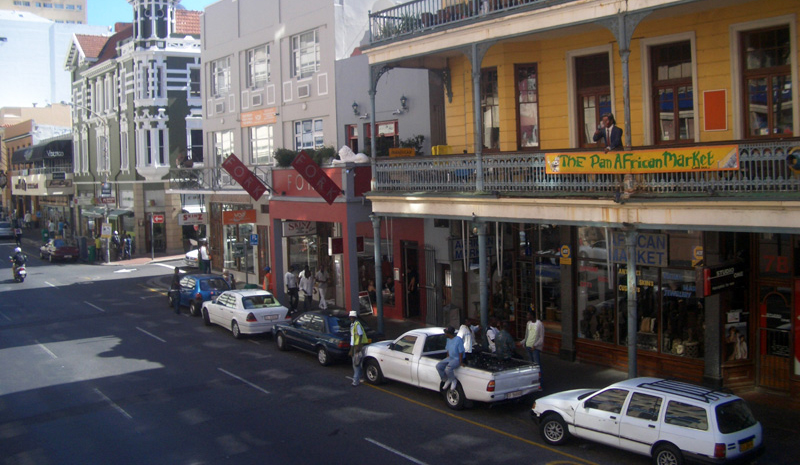WASHINGTON — Attracted by a burgeoning young middle class and the growth of consumer-driven industries in sub-Saharan Africa, many private equity firms are trying to make a bigger footprint on this fast-growing market.
An Ernest & Young report showed that private equity fundraising for Africa increased 136 % to $3.3 billion in 2013 from $1.4 billion a year earlier. It stood in stark contrast to other emerging markets such as China and Latin America, whose fundraising, although larger in comparison, fell significantly during the same period.
“A lot of people are looking at Africa and there are still more notebooks than checkbooks,” said Graham Stokoe, who leads Ernst & Young’s research on private equity across Africa. “But I think it starts to get more checkbooks now.”
In the past five years, countries such as Nigeria and Ghana have maintained an average economic growth of more than 6 %, according to World Bank data. Ethiopia, one of the most impoverished countries, has grown, off a smaller base, roughly 10 %.
Along with the robust growth is the unfolding consumer story. South Africa’s biggest lender, Standard Bank Group Ltd, predicted that the number of middle-class households in 11 Sub-Saharan countries, excluding South Africa, will balloon to more than 40 million by 2030 from 15 million today. With the emerging middle class, private industries catering to their consumer demands have opened new avenues for private equity firms to explore.
“We have a strong consumer orientation,” said Alex-Handrah Aimé, managing director of the Emerging Capital Partners, a Pan-African private equity company that has raised more than $2 billion for investments across the continent in the past 15 years.
Aimé said the investment landscape has shifted from energy to a full breadth of consumer-driven industry.
Of the 58 transactions the company listed on its website, about 40% went to consumer-supported industries such as financial services, health care and food processing. In the latest deal, the company gained exposure in Algeria, Africa’s third largest soft drink market, through buying a one-third stake of Atlas Bottling Corp., an Algerian company that bottles PepsiCo Inc.’s drinks.
Unlike many multibillion transactions in the capital-intensive energy industry, private equity investments in the consumer sector are relatively small and quite diverse. They could range from investing in a local fast food chain to a personal hygiene product manufacturer.
“You don’t have Kellogg, Kraft, Heinz. They just don’t exist,” said Stokoe. “You’ve got local consumer businesses and a lot of these investments are $10 million to $20 million.”
But many small investments can still get high returns. And this is no longer a secret to many private equity managers in Africa.
“It’s more natural for smaller companies to be growing faster,” said Richard Okello, co-founder and CEO of Sango Capital, a South Africa-based private equity firm that manages $110 million funds primarily raised from the U.S. The company targets middle-market transactions that range from $5 million to $35 million.
“If you find the right type of small companies that are in the right sector and the right countries and the supply and demand are in the right balance, then you’re going to have a high return,” Okello said.
Historically, many smaller funds tend to have stronger performance largely because of the rapid growth of the middle-market companies they were invested in. For instance, in South Africa, the return rate of small funds below $50 million achieved nearly four times the return of bigger funds between $50 million and $100 million and twice the return of funds above $100 million, a South African company RisCura Solutions Ltd’s recent report showed. The company tracks the performance of the private equity investments across the country.
Sometimes, small consumer investments can achieve good returns by tapping into the growing population of markets like Lagos, the most populous city in Nigeria with 20 million people.
“You can grow a very sizable business and don’t have to expand across the borders,” Ernst & Young’s Stokoe said. “You literally can build a bigger business even just in one city.”
While many companies are actively seeking opportunities, the poor infrastructure – the roads, bridges and the public transit systems — in many of the land-locked countries makes it hard to distribute consumer products, holding back some potential investments.
“We have been looking into food processing and agricultural companies,” said Runa Alam, co-founder of Development Partners International at a private equity forum held by the Atlantic Council recently. “One of the main stumbling blocks for us is how do we actually get the products out?”
Inadequate supply chains and a segmented market can increase the operating expenses of a business. Helping a business find a way to deliver consumer goods without spending too much on logistics and delivery can be a very practical challenge for private equity managers.
“What kind of returns do you expect considering the investment you have to make in infrastructure and supply chain in order for you to unlock the opportunity?” Emerging Capital Partners’ Managing Director Aimé said.
In 2012, Emerging Capital Partners acquired a majority stake in Nairobi Java House, a casual dining chain in Kenya, betting on the chain’s growth prospects in serving the country’s middle class. The business was able to thrive domestically and expand to other East African communities, partly thanks to the ECP’s investment in the logistics system that enables fresh food to move from the central commissary to local commissaries, Aimé said.
Some managers saw the infrastructure constraints as an investment opportunity while others adopted a selective strategy.
Ernest & Young’s latest research data showed from 2010 to 2013, total private equity investments combined in consumer sector and financial services reached $1.46 million, surpassing the $1.2 million in energy and natural resources.
“A lot of power investments are needed in the short to medium terms,” Ernst & Young’s Stokoe said. “The longer, longer term is definitely consumers.”

